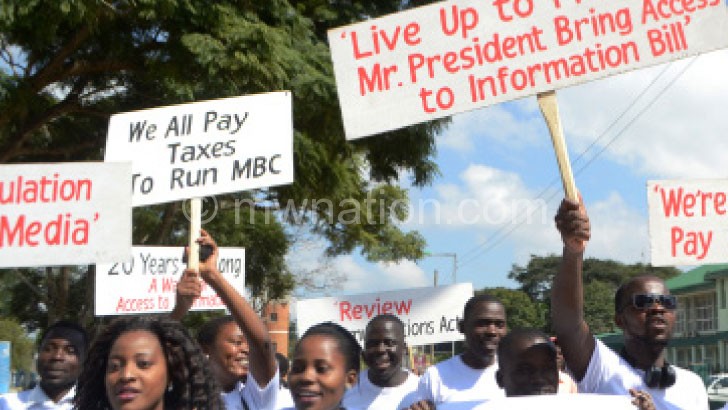Poor access to information promotes fraud-Nest
A local Civil Society Organisation in Malawi, National Elections Systems Trust (Nest) has added its voice on the need for the Access to Information (ATI) bill to be made into law saying information blackout in the governance system is a loophole for fraud and wide spread speculation on how public funds are managed.
Speaking in an interview Thursday, on the sidelines of its public expenditure tracking session, Nest executive director Unandi Banda, said there is a common problem regarding accessing vital information concerning use and management of public funds in local councils in Malawi.

Banda expressed hope that once the ATI is passed into law, the challenges that the citizens and the media face in accessing information from duty bearers will be minimised.
“Access to information bill is not an issue which concerns the media fraternity only; it is an issue which affects every citizen who needs information to exercise his/her rights.
The issue of bureaucracy is the major negative factor in accessing information from public institutions. While some have poor record keeping challenges others are infested with fraud and misuse of public resources and employ secrecy to run away from checks and balances,” he said.
He further added that decentralization cannot be realized if citizens were not given the opportunity to participate and hold duty bearers accountable.
Commenting on the issue, Chairperson of the parliamentary information and communications committee Samuel Kawale said the committee will present a report on its findings during the next sitting of the national assembly which begins this Monday.
The ATI bill was referred to the Media, Information and Communications committee of parliament and the Legal Affairs committee by the National Assembly to look into issues raised by various stakeholders.
Some of the issues include: Who should handle complaints from information seekers (High court versus Malawi Human Rights Commission), why pay for information (the bill actually says you pay for reproducing it, i.e. photocopying, and not paying for information) and the protection of whistle blowers.
“The report will be discussed in parliament and members will go through recommendations made by various stakeholders, after that it will be ready to be passed into law,” said Kawale.
Media Institute of Southern Africa (Misa)-Malawi Chapter, Malawi Human Rights Commission, Public Affairs Committee and Malawi Law Society are some of the stakeholders the two committees meet to discuss the bill.
Misa-Malawi chapter vice chairperson Yvonnie Sundu said the institute is working on making sure that the bill reflects the true representation of what people want.





